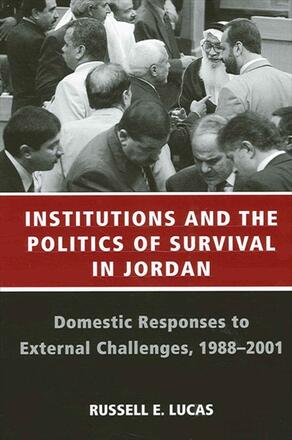
Institutions and the Politics of Survival in Jordan
Domestic Responses to External Challenges, 1988-2001
Alternative formats available from:
Explains how the Jordanian monarchy has survived economic crisis and regional political instability.
Description
Weaving together accounts of historical developments, cultural elements, economic factors, and regional and international dynamics, Russell E. Lucas explores how the monarchy in Jordan survived economic crisis and regional political instability during the 1990s. Lucas analyzes the factors behind the successful liberalization and deliberalization of laws regulating political parties, the parliament, and the press that helped preserve the monarchy. These institutional survival strategies co-opted the opposition, kept it divided, and reinforced the unity of the regime's coalition of supporters. The author also compares survival strategies in Jordan with those of Morocco, Kuwait, Iran, and Egypt to explain the surprising durability of authoritarian regimes in the Middle East.
Russell E. Lucas is Assistant Professor of Political Science and International and Area Studies at the University of Oklahoma at Norman.